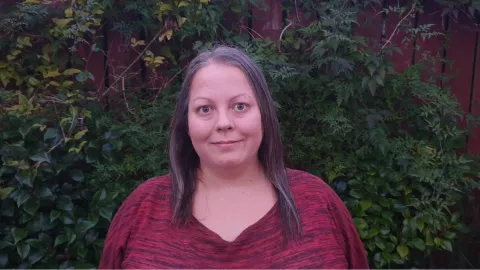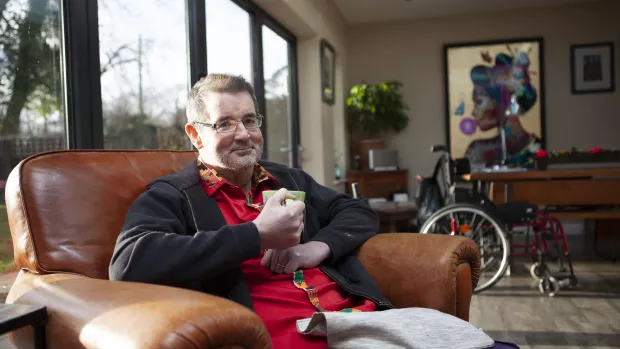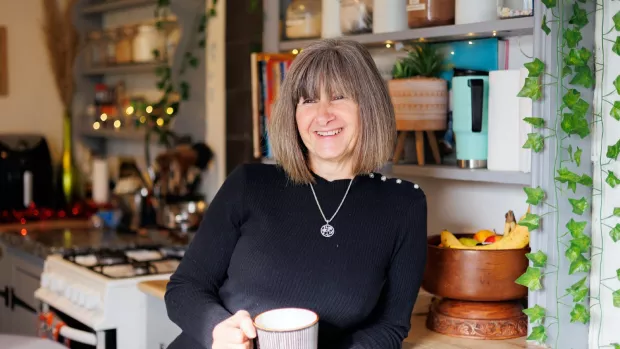
Tracking my MS with the UK MS Register
I was diagnosed with relapsing remitting MS in 2020, during the lockdown. I was in total shock and didn’t know how to deal with what was going to come next.
One thing I did was to google famous people! It was good to know that people like Jack Osbourne and Montel Williams could still be successful and have MS.
MS mostly affects my vision – I’ve lost 25% of vision in my left eye. Colours are mixed up, things are kind of faded. Even walking the short distance to the local shop can sometimes be difficult. I can’t always tell how far cars are away from me, or if they’re moving.
I also get altered sensations in my hands and feet. Sometimes it feels as if I’m walking on jaggy grass.
I’ve been on the disease modifying therapy (DMT) Tecfidera (dimethyl fumarate). But I’ve come off it as tests showed my lymphocytes are too low. So now I’m considering 3 other DMTs. I’ve been doing lots of research into the treatments. I want to know as much as I can about the risks and benefits before I talk to my neurologist.
From vitamin D to my mood – logging my data
I’ve found it really helpful to store information about things like my treatment on the UK MS Register. I signed up to the Register after my diagnosis because I think knowledge is key.
Everyone’s MS is so different and even for me things change day-to-day.
So it’s important to ask the same questions and get those different responses and map them over time.
After you sign up you fill in lots of information about your MS. Then every six months you get sent surveys. It tracks things like how your MS affects you, physically and your mood. You’re always told how long it will take to do each survey (for example, 4 minutes). And it’s multiple choice so it’s quite easy to fill in. There’s also guest studies as well, where researchers can ask additional questions. I did one on brain training, looking at cognition.
You can see graphs of your data which helps you keep track of things like depression and anxiety, and your EDSS score. Some of mine are quite straight and some are up and down. Everyone’s data together shows overall trends – I take vitamin D and they’ve found people with MS have higher levels of vitamin D because they're more likely to take a supplement.
There’s so many unknowns about MS
Why did I get it? I’d also like to know more about how DMTs affect people, the side effects and how to counteract them if you can.
Taking part in the UK MS Register is a way I can support the future of stopping MS.
I’m not clever enough to do the research myself! But I can give as much information as I can to help. And with the Register I understand what I’m getting involved in. They send regular emails, you get information and links to find out more.
It’s important to build up as big a picture as we can to work out what we can do to stop MS. Can we do something before it happens, what can we do after it happens? There need to be more treatments in place, especially for people with progressive MS.
There’s been so much great work in research so far, but so much more that could be done. Maybe we won’t stop MS right now, but it would be great to make decision making easier now - around healthcare and treatment options. And if we get to a future without MS, it would feel like we’ve made such an improvement to so many people’s lives.




